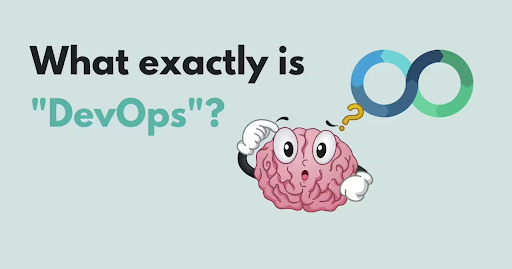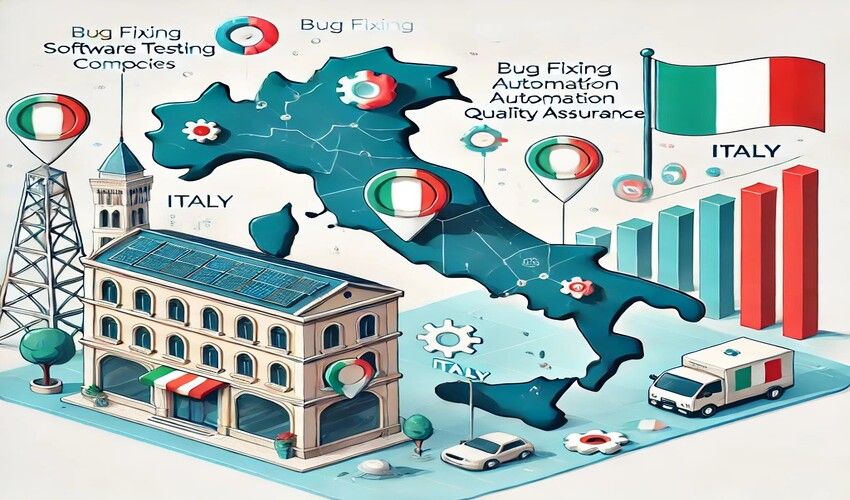Software development is one of the areas in which agility plays an increasingly important role. DevOps, however, is not a conventional software development system , but goes further: it not only changes the creation of software variants , but the way the company as a whole works. Taking a strict definition of DevOps, it would therefore be a business organization methodology that considerably influences the productivity and efficiency of software development.
DevOps in general terms
DevOps is a type of business culture or organizational form that can be implemented in a custom software development company. It is a combination of approaches, practices and tools that help the company greatly accelerate the process of creating and applying software while improving its quality.
The interaction between development and operations
An essential characteristic of DevOps is that it makes the development and operations teams work together , thus better integrating the tasks of both, which does not occur in conventional development processes. In this way, possible problems in the field of operations can be anticipated already during development and, on the other hand, the operations team benefits from the first moment of the knowledge and novelties that arise in development. These advantages come to light especially when the challenges of today’s market are taken into account, two of which are continuous integration and continuous delivery , which require very short reaction times in the development of new products. , as well as new versions and updates. The concept of DevOps meets these expectations, since it allows the time between each delivery to be reduced to a minimum.
DevSecOps – Integration and security in DevOps
DevOps is designed to provide services to IT companies, but the concept does not take into account, in principle, security or compliance issues (compliance with legal obligations regarding IT). To compensate for this lack, the concept of DevSecOps was created, which expands the development and operations components by adding security strategies . It is, therefore, the direct integration of the most important security elements in the development process.
Automation in the development process
DevOps integrates different agile methods that come from the field of custom software development services and computing. For the resulting combination to be useful for the company, the various development processes must be executed automatically. This automation affects, in many companies, the following fields of work:
- Writing and code review tasks, as well as combining snippets or programming code fragments.
- Tools to create new builds or compilations based on the current generation of code and versions.
- Tools for static and dynamic verification of existing code.
- Documentation and publication tools for release versions (final versions).
- Systems management tools as infrastructure as code (IaC)
- Application monitoring or tracking tools
- Tools to receive and classify customer feedback
Introducing and optimizing tools should not be taken lightly.
DevOps has spread in such a way that there is already a wide variety of tools and solutions to integrate this methodology. However, that does not mean that all of them are suitable for any company. Therefore, it is very important to first evaluate the particular needs of the company before choosing which specific methods will be implemented. When making the decision, communication between teams and work areas plays, again, a key role: everyone must agree on the usefulness of the tool.
There is also a wide range of solutions that can be optimally implemented in a DevOps methodology, among which are the popular continuous integration tools .
The relevance of automation in the DevOps process
The speed at which product and version cycles are renewed today makes it practically impossible to manage the lines of code they generate without help: in other words, you have to resort to automated systems, especially when it comes to identifying errors. These systems help, for example, find simple bugs or logic errors in the code. In addition, the different automated systems are responsible for ensuring that the compilation, review and monitoring of the entire process is carried out in a simple way , so that the members of the team in question can focus on analyzing the errors found. This not only prevents defective software from being released to the market , but also allows experts to repair serious flaws more quickly.
Without these automated solutions, the DevOps methodology processes would require a large investment of time and personnel, thus making the advantages of this form of organization lose their value. The only efficient way to implement the DevOps system is, therefore, accompanying it with the appropriate tools and solutions in the areas of automation and structuring.
Advantages of DevOps
The DevOps system offers many advantages for users, buyers and producers , among which the following stand out:
- Faster development
- Shorter periods between updates and new versions
- Greater security thanks to constant evaluation
- More news from rapid production progress
- Greater reliability thanks to tests parallel to development
- Greater security thanks to the implementation of DevSecOps
- Greater productivity, arising from improved teamwork, but extending beyond
Additionally, DevOps offers development benefits that not only benefit customers, but also directly and positively impact the business. Working between different teams, on the one hand, provides a greater feeling of belonging and greater understanding between company members and, on the other, prevents the way of working of each department from stagnating and losing connection with that of the others. . In this way, the teams’ ability to solve problems significantly improves.
Drawbacks of DevOps
One of the risks involved in the implementation of the system is that the company’s management fails to familiarize workers with its advantages and that they, therefore, react skeptically to the changes. If this occurs, workers could be uncooperative in the implementation of the concept , perhaps leading to conflicts within teams or departments. To avoid this risk, it is essential to communicate the advantages of DevOps effectively, so that workers do not feel limited in their personal scope of work.
In summary
The DevOps methodology involves a significant restructuring in each of the departments and, therefore, also a change in the skills and tasks of the members of the company. Therefore, complications cannot be ruled out when moving from conventional development methods to DevOps processes. Company management must be especially aware of the need to accelerate development processes without jeopardizing the safety of the final product . If this condition has already taken hold in the company, there is no better alternative than DevOps to achieve such a high level of control through such short product cycles.
Then, once the decision to integrate DevOps has been made, it is necessary to thoroughly plan the transition and ensure that you have the right tools, so that each step of the process can be carried out efficiently and, above all, safely. If, in addition, company members and teams become positively familiar with the change, the new methodology will not take long to bear its first fruits. Software development services built with it can be brought to market more quickly and with more frequent updates. As if that were not enough, its quality will also improve significantly , since each version will be reviewed much more accurately thanks to automated monitoring and controls, to ensure that it can be used optimally.
In this way, for example, possible security gaps and software operating problems can be solved more quickly , without doing so generating new gaps or problems. Although the process of implementing the DevOps methodology is usually long and full of challenges, once the transition is made, both the company and customers reap great benefits from this method.
Author Bio:
Glad you are reading this. I’m Yokesh Shankar, the COO at Sparkout Tech, one of the primary founders of a highly creative space. I’m more associated with digital transformation solutions for global issues. Nurturing in Fintech, Supply chain, AR VR solutions, Real estate, and other sectors vitalizing new-age technology, I see this space as a forum to share and seek information. Writing and reading give me more clarity about what I need.

















Leave a Reply